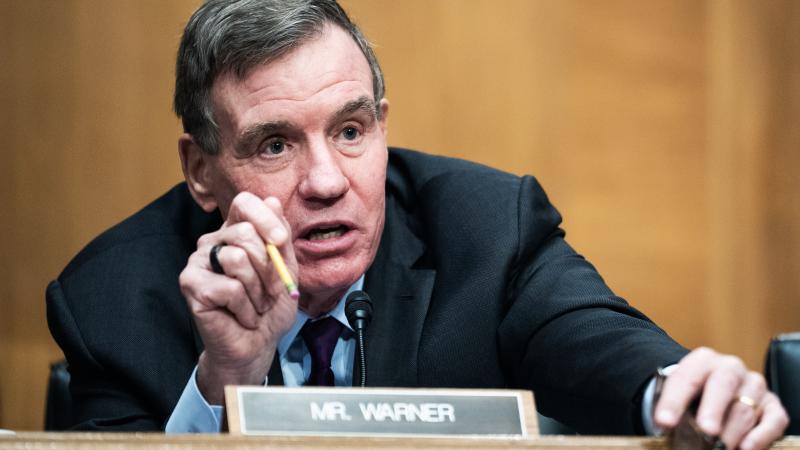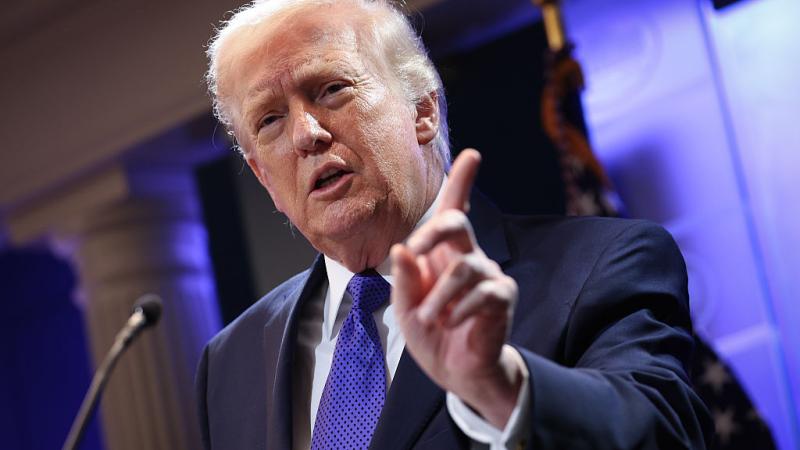The top 10 issues driving the election
Both Harris and Trump have attempted to present themselves as the “change” candidate, in contrast either to the existing administration or the older generations that have governed the nation.
As voters head to the polls on Election Day to choose the next American president, they will weigh more than just a choice between former President Donald Trump and Vice President Kamala Harris. Either outcome comes with a slew of implications for the many issues polarizing the United States.
A host of economic factors are driving voter consideration: the state of global conflicts; constitutional concerns; and the competing visions of both candidates. The election is currently neck and neck, with the candidates tied in the RealClearPolitics national polling average.
Both candidates have attempted to present themselves as the “change” figure, in contrast either to the existing administration or the older generations that have governed the nation. Their success, as it relates to the electorate’s most salient issues, could prove the tipping point given widespread voter discontent with the Biden administration. An April Gallup poll stated that Biden had the all-time worst overall approval record in history, with a 38.7% job approval rating. That's lower than Richard Nixon's low point of 53.7%.
Here’s a look at the top ten key considerations for voters when the enter the booth on Tuesday.
Inflation
A top issue for voters in any survey, inflation and cost-of-living have dominated the political news cycle for much of the Biden administration and have ranked among the current president’s least favorable issues.
President Joe Biden currently holds a 36.0% average approval on inflation while 62.5% of Americans disapprove of his handling of the matter. Inflation peaked in June 2022 at 9.1%, but has declined to 2.4% as of September of this year.
Harris has touted her support for the Inflation Reduction Act throughout the election cycle whereas Trump has vowed to work toward lowering costs through energy production, which he asserts will translate to reduced prices in other sectors.
The Trump campaign is optimistic the issue will be a winning one for the Republicans.
"And we've seen in our recent polls, 85% of all Americans said they were negatively impacted by inflation, and 51% to the point that they can't afford basic necessities," Trump-aligned pollster John McLaughlin said Monday on the "John Solomon Reports" podcast. "So, if you're undecided about voting tomorrow, just go to the supermarket first. It'll put you in the mood."
"It's not the only issue, but the economy sets the baseline, and right now, 25% of voters say their personal finances are getting better. 41% say they're getting worse," said pollster Scott Rasmussen on the same program. "But I think the more significant factor is that people in the seven swing states are more pessimistic about the economy than voters overall. Another reason why you think the edge is a little bit in Donald Trump's favor."
Immigration/The Border Crisis
Trump made this his signature issue since first announcing his presidential run in 2015, and illegal immigration has come to the forefront of voter concerns under the Biden administration. U.S. Customs and Border Protection has documented more than 10 million migrant encounters over the past four years.
The influx has led to Republican border states busing migrants to self-declared "sanctuary cities" in a bid to highlight the consequences of mass immigration. As Chicago and New York City buckle under the weight of the new arrivals, Trump has campaigned on the issue in those Democratic bastions, pledging mass deportations.
The number of immigrants crossing the border and their relationship to violent crime has fueled much of Trump’s criticisms and he has repeatedly pointed to the deaths of young girls, such as Laken Riley and Jocelyn Nungaray, both of whom were allegedly murdered by illegal immigrants.
As a riposte, Harris blamed Trump for killing a bipartisan immigration reform bill that would have granted the Department of Homeland Security authority to crack down on asylum seekers. Trump has said the bill was an election year gambit and that the president already had the authority to close the border.
Abortion
A key driver of voter turnout in the 2022 midterms, abortion has become a central issue for Democrats this cycle in the wake of the Dobbs v. Jackson Supreme Court decision that overturned the federal constitutional right to abortion, reverting the matter to individual states.
Harris has falsely claimed that Trump would sign a national abortion ban should he return to the White House. Trump has repeatedly denied any such plans and insisted that he sees the matter as a "states' rights" issue.
Harris, in contrast, has promised to sign legislation codifying the abortion protections guaranteed under the now-defunct Roe v. Wade ruling. In the meantime, several states, including Florida, are holding referendums on abortion access alongside the presidential election.
Threats to Democracy
Democrats' insistence that Trump is a potential threat to the Constitution has been a fixture of Harris campaign messaging, as have the events of Jan. 6, 2021, at the U.S. Capitol.
Recent news cycles have painted Trump as a would-be Adolf Hitler and likened his rally at Madison Square Garden to a 1939 Nazi rally at the same venue. Trump has called the event a “love fest.”
Fueling some of the criticisms was Trump’s quip that he would not act as a dictator “except for day one,” when he planned to sign executive orders on immigration and energy production.
Addressing the matter more seriously, Trump has pointed to the two assassination attempts against him, blaming Democratic rhetoric for encouraging political violence against him and insisting that that party represented the true threat to democracy.
Trump’s legal issues
Trump has faced four criminal indictments, including two from special counsel Jack Smith, one from Fulton County District Attorney Fani Willis, and one from Manhattan District Attorney Alvin Bragg.
Bragg’s hush money case was the first criminal indictment of a former president and resulted in his conviction on 34 counts of falsifying business records related to a 2016 payment his then-attorney, Michael Cohen, made to Stormy Daniels. Trump has maintained his innocence and moved to appeal the verdict.
Willis' case has been postponed until after the election as the Trump team challenges a decision that permitted her to remain on the case if special prosecutor Nathan Wade stepped down. The pair came under fire over an improper sexual relationship. They have admitted to the relationship but insisted it began after Willis hired Wade.
Smith’s federal classified documents case in the Southern District of Florida was dismissed by U.S. District Judge Aileen Cannon, though Smith has appealed to revive the charges. His election case was stalled by Trump’s presidential immunity argument and Smith has revised the charges in light of a Supreme Court decision, though the new charges are likely to face appeal as well.
Harris hiding from the press
Harris became the party nominee without a primary process as President Joe Biden chose to withdraw from the race after a disastrous debate against Trump that renewed concerns over his age and mental fitness for office. She never faced opposition or debates, and many observers, even on the left, say she was simply "anointed."
The absence of a primary left Democrats with relatively little opportunity to present Harris to the party rank and file before she became the nominee and her campaign struggled to communicate tangible policy positions to voters. She initially attempted to emulate Biden’s successful “hiding in the basement” strategy of 2020, but was ultimately shamed into a “media blitz” that saw her make a string of gaffes.
Foreign wars
Trump has often campaigned on his status as one of the few presidents in recent history who did not start a foreign conflict. Since his departure from office, the world has witnessed the outbreak of the Russia-Ukraine War, a flare-up of the Israeli-Palestinian conflict, and the collapse of the U.S. position in Afghanistan.
The former president has heavily emphasized the relatively stable state of the world under his stewardship in contrast to the conflicts of the present. Some foreign leaders, such as Hungarian Prime Minister Viktor Orban, have called for Trump’s return to the world stage to bring peace.
Age/fitness for office
At age 81, Biden is the oldest sitting president in U.S. history. His debate performance often saw him appear lost on stage or stumble over his answers. With age a key concern that prompted his withdrawal from the race, it could conceivably play a role in a Trump vs. Harris matchup.
Trump, 78, is not far behind Biden and some Democrats have raised comparable concerns over his age and mental acuity, though it has not plagued him to the same extent it did Biden. When facing the 60-year-old Harris, the contrast is more notable.
Free speech
Something of a surprise issue in the election is the issue of free speech. A recent Foundation for Individual Rights and Expression/NORC survey found that 63% of Americans saw free speech as “very important,” only behind inflation, of which 68% said the same.
“Misinformation” and social media censorship thereof has been at the forefront of First Amendment concerns over the past four years, especially in light of the infamous Facebook and Twitter ban on any news stories regarding Hunter Biden's laptop, which the government knew was legitimate. Many platforms banned Trump’s accounts after Jan. 6.
A short-lived Disinformation Governance Board from the Biden administration drew immense ridicule and backlash. Trump, meanwhile, started his own Truth Social platform to amplify his voice independent of existing Big Tech oversight. Elon Musk’s purchase of Twitter, now "X," has further enraged the political left over his policy of permitting speech they find objectionable.
Supreme Court
Trump appointed three justices to the Supreme Court during his time in office. All three ultimately voted to overturn Roe v. Wade and have further contributed to a number of other conservative decisions, such as the banning of affirmative action in college admissions.
Biden appointed a single justice, Ketanji Brown Jackson, during his term. Jackson is infamous for when in confirmation hearings was asked if she could define the word “woman.” Jackson replied that "I’m not a biologist."
It is unclear whether any sitting justices are likely to retire over the next four years, but the prospect of preserving or weakening the court’s current conservative majority is a consideration for many voters.
The Facts Inside Our Reporter's Notebook
Links
- RealClearPolitics
- Biden had the all-time worst overall approval record
- peaked in June 2022 at 9.1%
- John Solomon Reports
- New York City
- mass deportations
- Jocelyn Nungaray
- Dobbs v. Jackson
- denied any such plans
- love fest.
- except for day one
- encouraging political violence
- moved to appeal
- Willis case
- dismissed by U.S. District Judge Aileen Cannon
- revised the charges
- simply "anointed."
- media blitz
- Hungarian Prime Minister Viktor Orban
- Trump, 78,
- Foundation for Individual Rights and Expression/NORC
- infamous Facebook and Twitter ban
- Disinformation Governance Board
- Ketanji Brown Jackson
- Jackson replied















